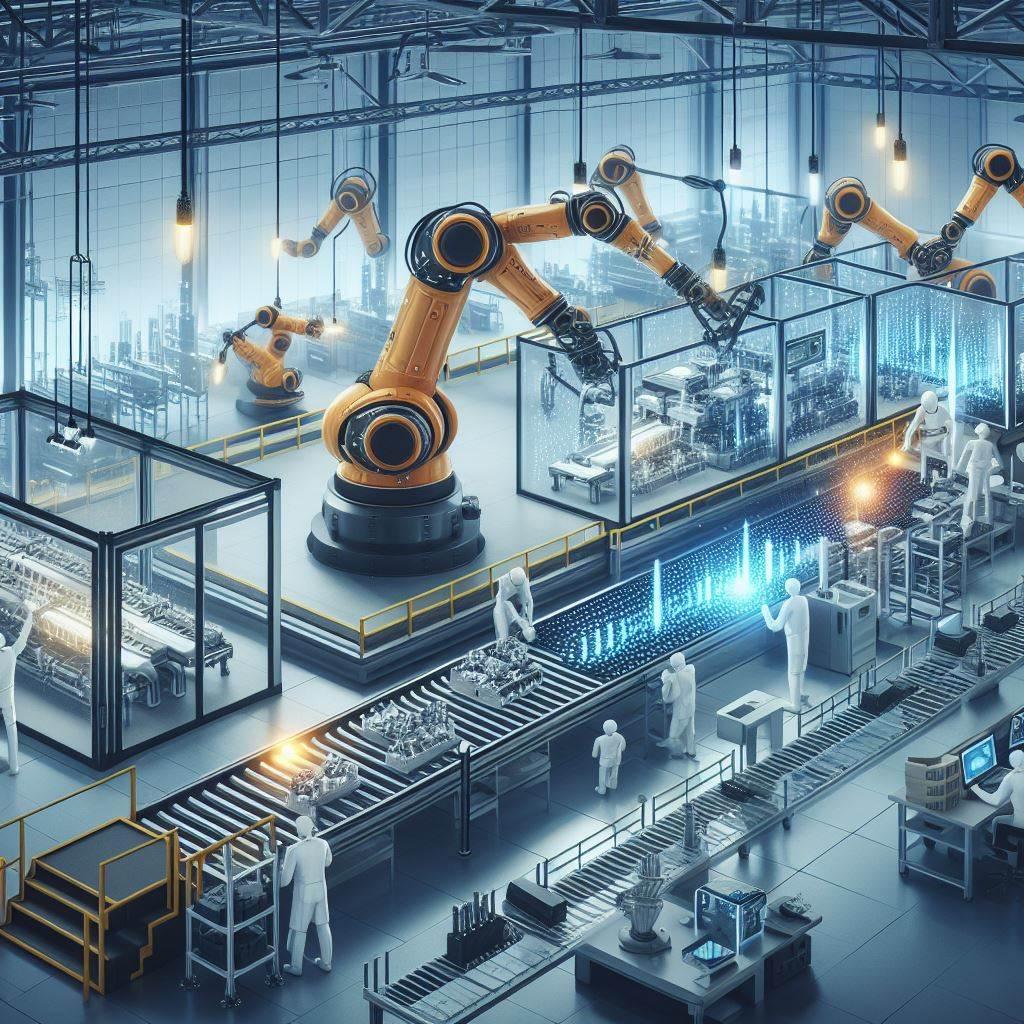AI Manufacturing Boom: Projections and Industry Trends to 2028

Artificial Intelligence (AI) is transforming the manufacturing industry by enhancing efficiency, improving quality, and driving innovation. As manufacturers face increasing competition and demand for customized products, AI offers solutions that streamline operations, reduce costs, and enable data-driven decision-making.
Here’s how AI is revolutionizing manufacturing:
Enhanced Production Efficiency
AI-driven automation is a cornerstone of modern manufacturing. By leveraging machine learning algorithms and predictive analytics, AI systems can optimize production processes, reducing downtime and increasing throughput. For instance, AI can predict equipment failures before they occur, allowing for preventive maintenance that minimizes disruptions. This predictive maintenance reduces costs associated with unexpected breakdowns and extends the lifespan of machinery.
Additionally, AI-powered robots and cobots (collaborative robots) are becoming integral to manufacturing floors. These robots can perform repetitive tasks with high precision and speed, freeing human workers to focus on more complex and value-added activities. The integration of AI in robotics also enables real-time adjustments in the production line, ensuring optimal performance and quality control.
Quality Control and Defect Detection
AI enhances quality control by using computer vision and machine learning algorithms to inspect products with greater accuracy than human inspectors. AI systems can identify defects and anomalies in products at various stages of production, ensuring that only high-quality items reach the market. This level of precision reduces waste, lowers production costs, and enhances customer satisfaction.
For example, in the automotive industry, AI can analyze images of car parts to detect minute defects that might be missed by the human eye. This automated inspection process not only improves the consistency of quality but also speeds up the inspection process, contributing to overall production efficiency.
Supply Chain Optimization
AI plays a crucial role in optimizing supply chains by predicting demand, managing inventory, and ensuring timely delivery of materials. Machine learning models analyze historical data and market trends to forecast demand accurately. This helps manufacturers maintain optimal inventory levels, reducing the risk of overproduction or stockouts.
Moreover, AI can enhance logistics by optimizing routes and schedules for transportation. By considering factors such as traffic conditions, weather, and delivery priorities, AI algorithms can ensure that goods are delivered efficiently and on time. This level of optimization reduces transportation costs and improves supply chain reliability.
Personalized Manufacturing
With the rise of consumer demand for personalized products, AI enables manufacturers to offer customization at scale. AI systems can analyze customer preferences and tailor products to meet individual requirements. This mass customization is achieved through advanced data analytics and flexible manufacturing processes.
For instance, in the apparel industry, AI can analyze fashion trends and customer feedback to design clothing that aligns with current preferences. Manufacturers can then produce customized garments in smaller batches, reducing waste and meeting customer expectations more effectively.
- Art
- Causes
- Crafts
- Dance
- Drinks
- Film
- Fitness
- Food
- Игры
- Gardening
- Health
- Главная
- Literature
- Music
- Networking
- Другое
- Party
- Religion
- Shopping
- Sports
- Theater
- Wellness
- IT, Cloud, Software and Technology


